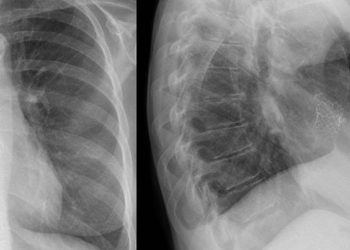Lower glycemic criteria for gestational diabetes did not affect risk of a large-for-gestational-age infant
1. Compared to the use of higher glycemic criteria, lower glycemic criteria for diagnosis of gestational diabetes did not alter the risk for large-for-gestational-age infants.
2. There were no significant differences in adverse events between women in the low glycemic criteria group or those in the high glycemic criteria group.
Evidence Rating Level: 1 (Excellent)
Study Rundown: Gestational diabetes is a major worldwide health problem. Pregnancy-related risks also include higher rates of induced labor, C-section, preeclampsia, and the birth of large-for-gestational-age infants. Management of gestational diabetes consists of nutritional therapy, blood glucose monitoring, and as-needed pharmacologic treatment. There is a gap in knowledge as to understanding whether lower glycemic criteria for the diagnosis of gestational diabetes would provide lower perinatal morbidity without higher maternal health-related risk as compared to higher glycemic criteria. Overall, this study found that the use of lower glycemic criteria for the diagnosis of gestational diabetes led to a higher percentage of women being diagnosed with gestational diabetes and subsequently utilizing more health services. Though, the risks of giving birth to a large-for-gestational infant and other infant or maternal complications were not lower with the lower glycemic criteria than with the higher glycemic criteria. This study was limited in follow-up to determine whether differences in infants born in patients with gestational diabetes have differences in body size at later stages in life. Nevertheless, this study’s findings are significant, as they demonstrate that having lower glycemic criteria for gestational diabetes does not significantly alter the risk of having a large-for-gestational-age infant.
Click to read the study in NEJM
Relevant Reading: A Pragmatic, Randomized Clinical Trial of Gestational Diabetes Screening
In-Depth [randomized control trial]: This randomized trial was conducted at two health systems that provide primary to tertiary maternity care in New Zealand. Patients with a singleton pregnancy were eligible if they had a 75-g oral glucose tolerance test for gestational diabetes at 24 to 32 weeks gestation and provided written informed consent. Patients with diabetes mellitus or a history of gestational diabetes were ineligible for the study. Patients were subsequently randomly assigned in a 1:1 ratio to be evaluated for gestational diabetes with lower or higher glycemic criteria for diagnosis. The primary outcome measured was the birth of an infant who was large for gestational age, defined as a birth weight above the 90th percentile. Outcomes in the primary analysis were assessed via log-binomial regression and exact logistic regression, as well as linear regression. Based on the primary analysis, gestational diabetes was diagnosed in 15.3% of women in the lower glycemic criteria group and in 6.1% of the higher glycemic criteria group. Among the infants born in the lower glycemic criteria group, 8.8% were large for gestational age, while 8.9% were large for gestational age in the higher glycemic criteria group (adjusted relative risk, 0.98; 95% Confidence Interval, 0.8 to 1.19). Use of health services such as induction of labor and use of pharmacologic agents were more common in the lower glycemic criteria group. There were no substantial differences in terms of adverse events between the two groups. Overall, this study demonstrates that the use of lower glycemic criteria for the diagnosis of gestational diabetes does not lower the risk of having a large-for-gestational-age infant compared to using higher glycemic criteria.
Image: PD
©2022 2 Minute Medicine, Inc. All rights reserved. No works may be reproduced without expressed written consent from 2 Minute Medicine, Inc. Inquire about licensing here. No article should be construed as medical advice and is not intended as such by the authors or by 2 Minute Medicine, Inc.







